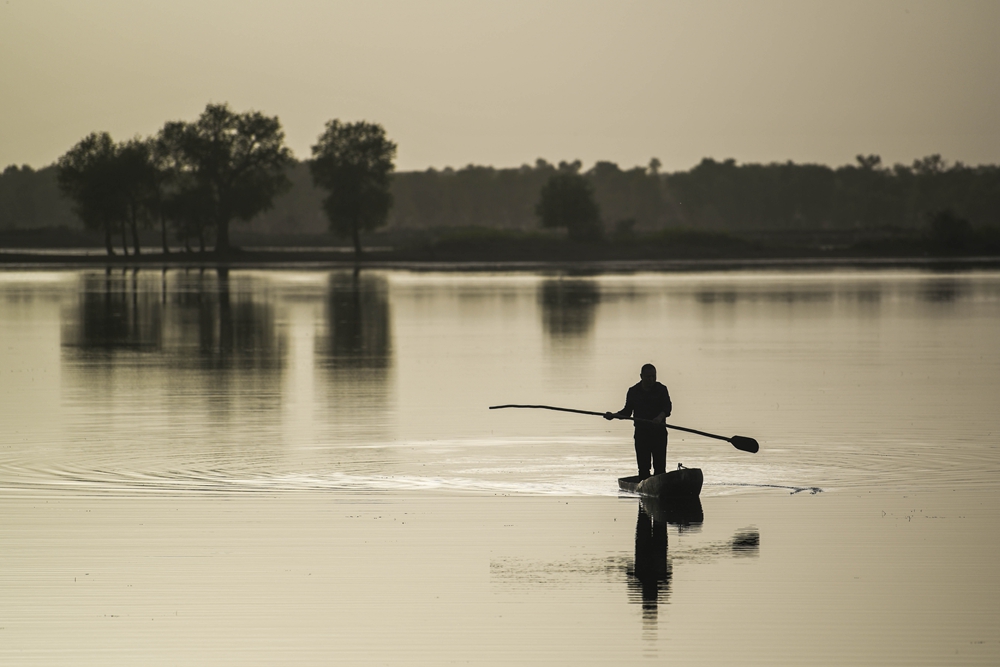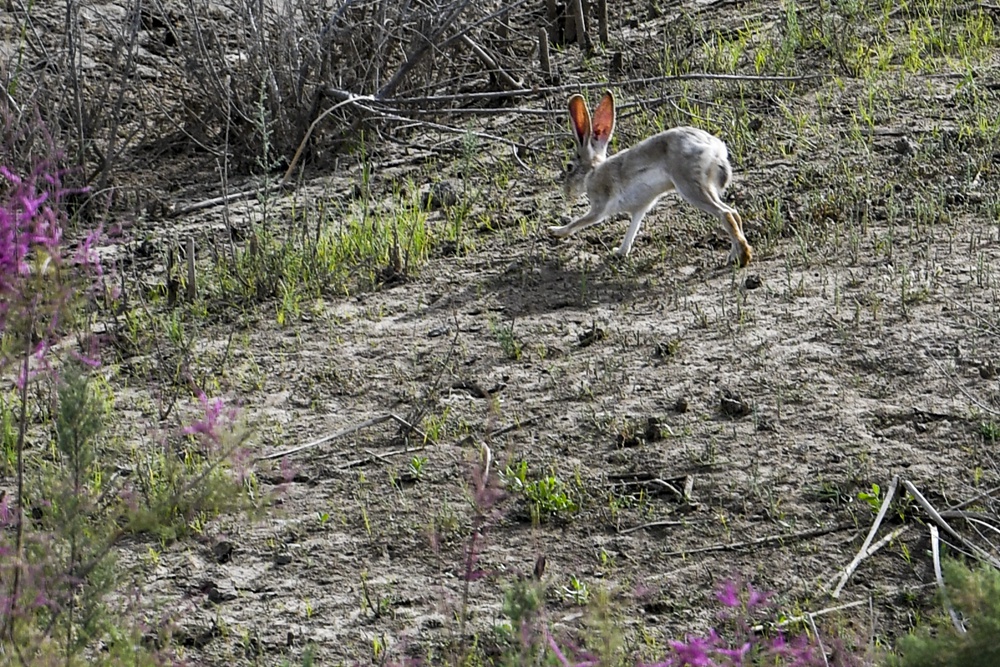| |





/
|
|
|
A limpid lake, a clump of trees, a tiny boat and a single person that constitutes Aili Niyazi’s life on the bank of Tarim River in the Tarim Basin, a desert region in northwest China’s Xinjiang Uygur Autonomous Region. For the 46-year-old forest ranger, riding on a poplar-made boat to inspect the growth of wild Euphrates Poplar, a species normally found in arid regions, is part of his life. Yuli County, where Niyazi lives, is located in the middle and lower reaches of the river in the north of the Taklimakan Desert, and is home to 533 square km of poplar forest. The 520-km long and 240-km wide forest area has been managed by Niyazi and his colleagues for years. After graduating in 1993 from a vocational school, Niyazi became one of the rangers with an aspiration to change his hometown. And he has guarded the trees for 26 years. Every day, Niyazi travels dozens of kilometers in the forest with complex terrain including earthbags, wetlands and lakes, to observe how the trees are growing. Depending on the terrain, sometimes he rides a motorbike, sometimes a horse and sometimes a boat, which makes him an amphibious ranger. What a fulltime ranger needs to bear in addition is the extreme weather conditions. In the summer, the temperature soars to over 40 degrees Celsius while in the winter, it plummets to minus 20. The dazzling sunshine and annoying mosquitos are all his natural enemies. Moreover, the long distance between his work place and his home as well as the downtown area has always been a challenge. "It's hard for sure, but I know the value of every single tree. I have guarded them as if I’m guarding my hometown," Niyazi said. In the past three years, Xinjiang has stepped up its efforts to protect ecological environment and continuously transit water to the forest area, which is the largest poplarforest in the world. More and more poplar trees are being saved from destruction and rangers like Niyazi are playing an increasingly important role. (Photos from Xinhua) Copyedited by Madhusudan Chaubey Comments to ffli@bjreview.com |
|
||||||||||||||||||||||||||||
|